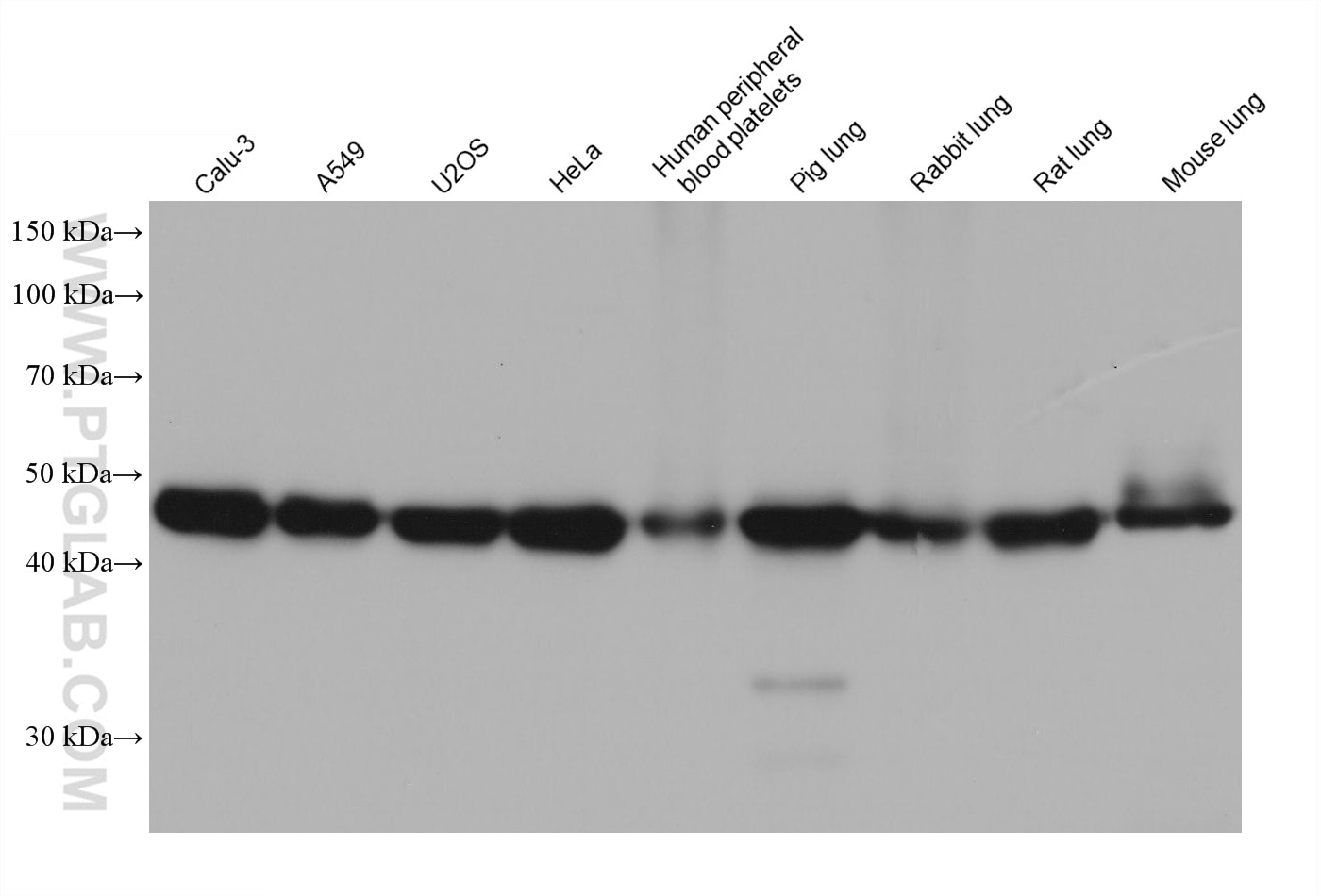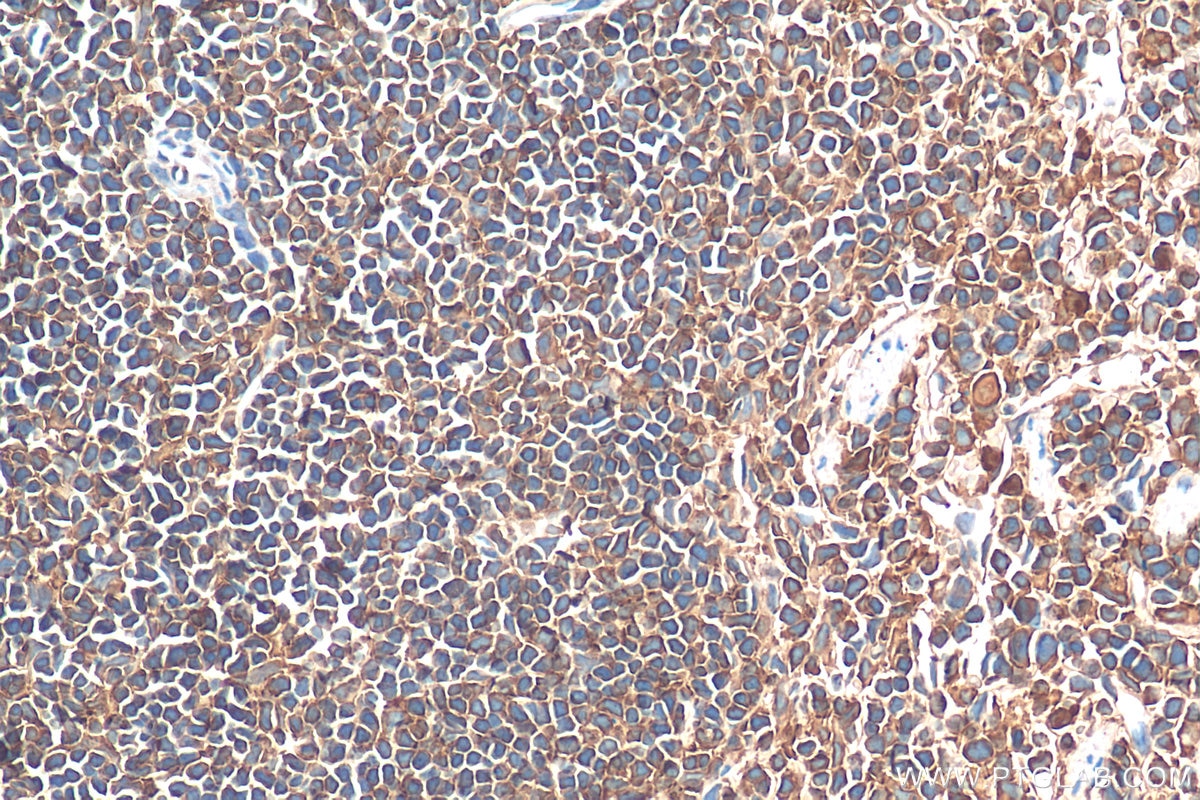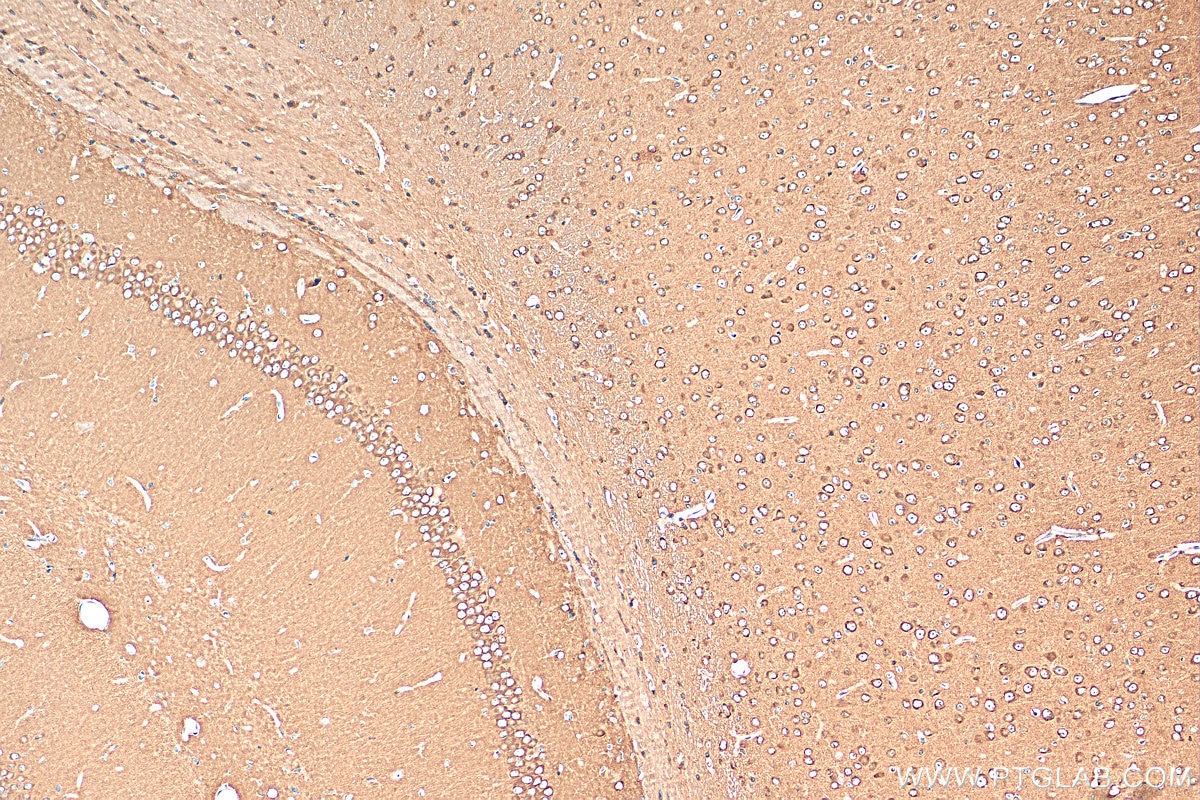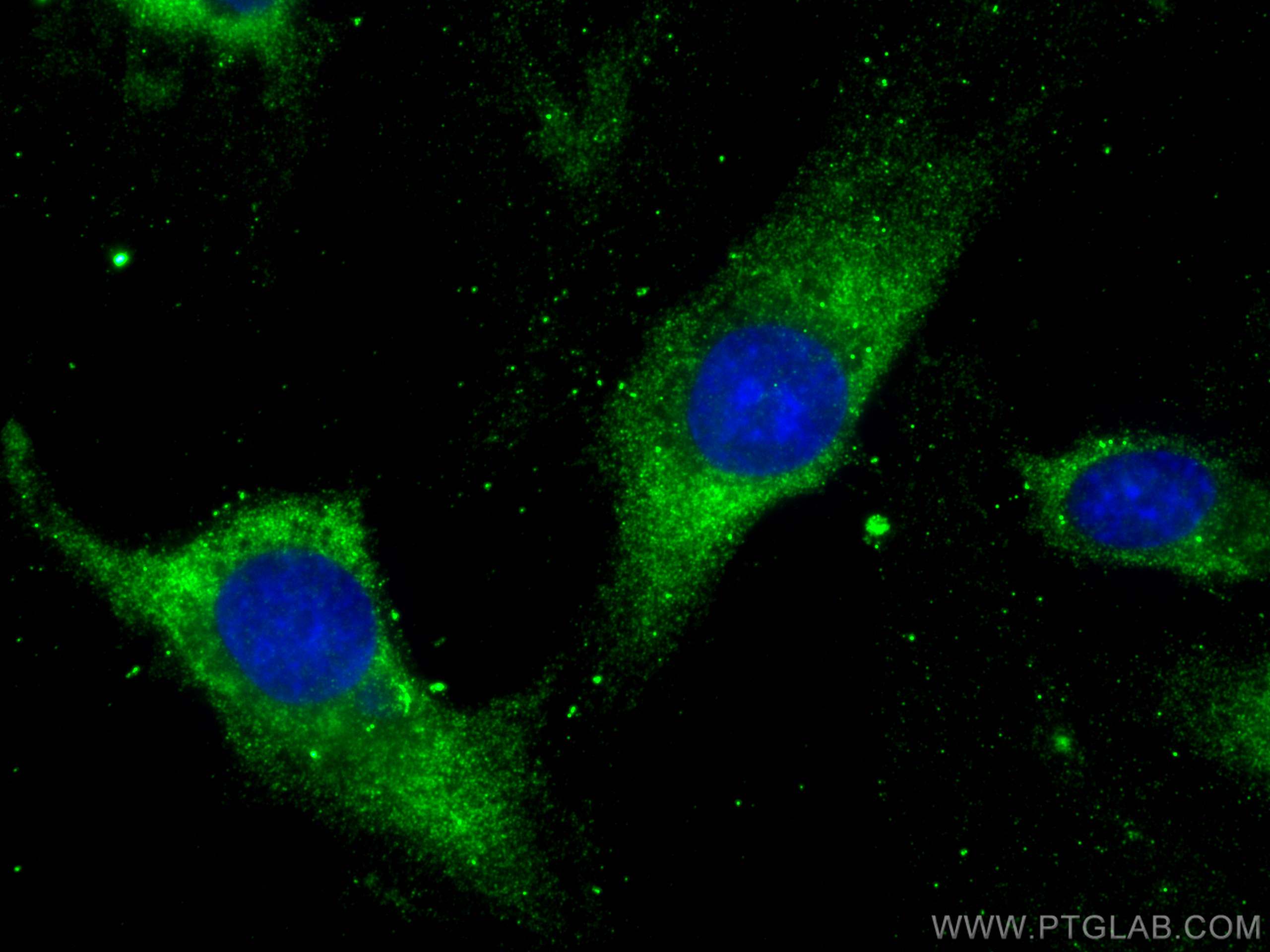Tested Applications
| Positive WB detected in | Calu-3 cells, A549 cells, U2OS cells, HeLa cells, Human peripheral blood platelets, Pig lung tissue, Rabbit lung tissue, Rat lung tissue, Mouse lung tissue |
| Positive IHC detected in | mouse brain tissue, mouse spleen tissue Note: suggested antigen retrieval with TE buffer pH 9.0; (*) Alternatively, antigen retrieval may be performed with citrate buffer pH 6.0 |
| Positive IF/ICC detected in | HUVEC cells |
Recommended dilution
| Application | Dilution |
|---|---|
| Western Blot (WB) | WB : 1:5000-1:50000 |
| Immunohistochemistry (IHC) | IHC : 1:500-1:2000 |
| Immunofluorescence (IF)/ICC | IF/ICC : 1:400-1:1600 |
| It is recommended that this reagent should be titrated in each testing system to obtain optimal results. | |
| Sample-dependent, Check data in validation data gallery. | |
Product Information
68439-1-Ig targets ARP3/ARP3B in WB, IHC, IF/ICC, ELISA applications and shows reactivity with Human, mouse, rat, rabbit, pig samples.
| Tested Reactivity | Human, mouse, rat, rabbit, pig |
| Host / Isotype | Mouse / IgG1 |
| Class | Monoclonal |
| Type | Antibody |
| Immunogen |
CatNo: Ag5017 Product name: Recombinant human ACTR3 protein Source: e coli.-derived, PET28a Tag: 6*His Domain: 156-418 aa of BC044590 Sequence: RQVGERTLTGTVIDSGDGVTHVIPVAEGYVIGSCIKHIPIAGRDITYFIQQLLRDREVGIPPEQSLETAKAVKERYSYVCPDLVKEFNKYDTDGSKWIKQYTGINAISKKEFSIDVGYERFLGPEIFFHPEFANPDFTQPISEVVDEVIQNCPIDVRRPLYKNIVLSGGSTMFRDFGRRLQRDLKRTVDARLKLSEELSGGRLKPKPIDVQVITHHMQRYAVWFGGSMLASTPEFYQVCHTKKDYEEIGPSICRHNPVFGVMS Predict reactive species |
| Full Name | ARP3 actin-related protein 3 homolog (yeast) |
| Calculated Molecular Weight | 418 aa 47 kDa |
| Observed Molecular Weight | 47 kDa |
| GenBank Accession Number | BC044590 |
| Gene Symbol | ARP3/ACTR3 |
| Gene ID (NCBI) | 10096 |
| RRID | AB_3085152 |
| Conjugate | Unconjugated |
| Form | Liquid |
| Purification Method | Protein G purification |
| UNIPROT ID | P61158 |
| Storage Buffer | PBS with 0.02% sodium azide and 50% glycerol, pH 7.3. |
| Storage Conditions | Store at -20°C. Stable for one year after shipment. Aliquoting is unnecessary for -20oC storage. 20ul sizes contain 0.1% BSA. |
Background Information
ARP3 (also known as ACTR3) is a major constituent of the ARP2/3 complex that is necessary for nucleating actin polymerization at filament branches. ARP3 localizes to the lamellipodia of stationary and locomoting fibroblasts. Overexpression of ARP3 has been reported in several types of cancer cells. This antibody recognizes endogenous ARP3 and may cross-react with ATCR3B.
Protocols
| Product Specific Protocols | |
|---|---|
| IF protocol for ARP3/ARP3B antibody 68439-1-Ig | Download protocol |
| IHC protocol for ARP3/ARP3B antibody 68439-1-Ig | Download protocol |
| WB protocol for ARP3/ARP3B antibody 68439-1-Ig | Download protocol |
| Standard Protocols | |
|---|---|
| Click here to view our Standard Protocols |










